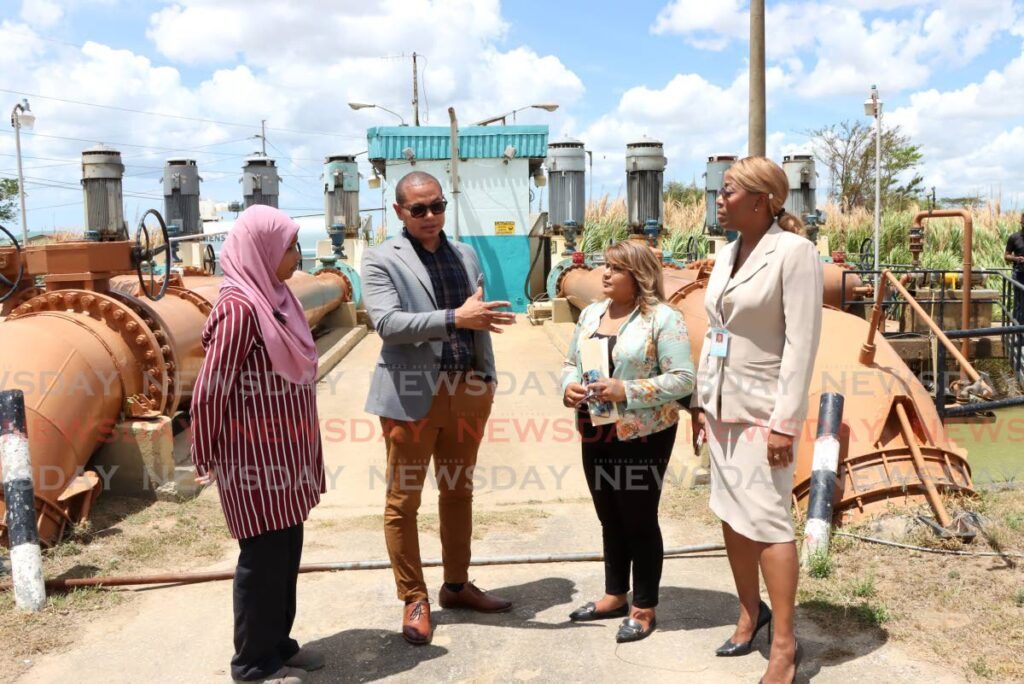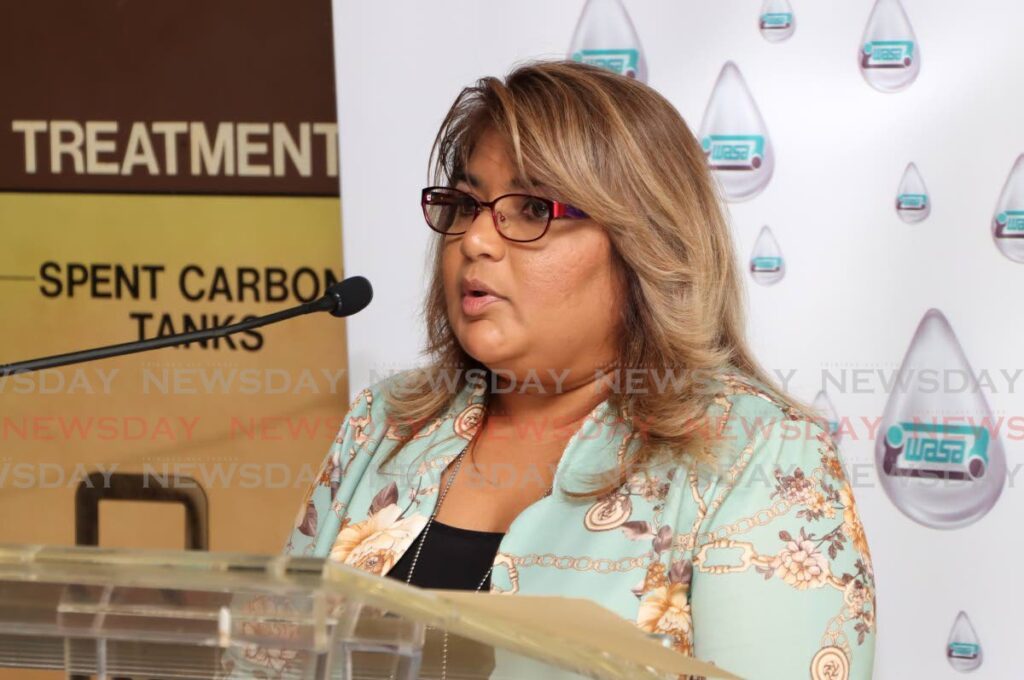WASA: Worst drought ever – New water restrictions from March 1 - June 30

This was revealed on March 5 by WASA officials during a media briefing at the Caroni water treatment plant in St Helena.
Saying it was the worst drought in recent memory, WASA's Director of Operations Shaira Ali said there was a significant deficit in production owing to minimal rainfall and consistent declines throughout all of WASA's surface-water facilities.
Ali said the new water restrictions would be for areas which, prior to March 1, had a continuous supply and were not on the authority's regular water schedule.
She called the adjustment of schedules – which would see a redistribution of water from areas which previously had a continuous supply, to those with reduced supplies – as necessary, along with the installation of digital devices at the country's main reservoirs which would constantly monitor water levels.
Director of Customer Care Natasha Andrews said the Water and Sewerage Act, Chapter 54:40, bans the use of hoses and similar apparatus for watering private gardens and/or washing private cars, during the dry season.
Additionally, she said WASA was taking water theft very seriously, saying its estate police unit would be doing heightened patrols throughout the country. She urged people to help WASA ensure everyone had access to water during the period by following regulations.
Andrews spoke about an increase in fines for wasting water, with WASA's board already approving a proposal for such an increase. When asked about car-wash businesses, Andrews clarified that they could still operate, but must use buckets instead of hoses.
However, water fountains and decorative fixtures using water are not allowed in business places or private homes.

WASA CEO: Reservoir levels low
WASA's CEO Kelvin Romain said this year's drought was the worst the authority had seen, and he pleaded with the public to conserve water.
He said, owing to the extreme weather conditions, the Caroni water treatment plant which serves over half the population with seven million gallons of water per day, was now functioning at 65 per cent capacity, experiencing low reservoir levels.
Romain said the Caroni plant extended its services south all the way to La Brea, and the desalination plant, which usually produced 40 million gallons of water per day, had to reduce production to 37 million gallons.
“We have been here already. The desalination plant during the dry season usually suffers from higher algae build-up, which affects our extremities.
"What we are doing to mitigate this is increasing our trucking capacity and we expect conservation from our customers.” Romain said WASA was undertaking further optimising of its system, focusing primarily on leak repairs and replacement of faulty parts. Romain said the Navet water treatment plant, which primarily served the south-east parts of Trinidad, was also producing less water.
He said Navet also serviced the Mayaro area and WASA was taking measures to offset any shortfall to its customers.
At the Hillsborough dam, production has dropped from 1.4 million gallons to 1.1 million, although it remains the best-performing reservoir. Romain said WASA was paying close attention to the Arena reservoir, whose daily production had dropped by ten per cent in 2024.
Romain stressed the importance of bringing that information to the public's attention so they could assist with conservation efforts, given the lower reservoir levels compared to last year.
Ali later provided details of the water levels of reservoirs, mentioning that the authority had implemented measures and new schedules focusing on communities and under served areas. She said the Meteorological Office's (MET) forecast for this year's dry season predicted drier-than-normal conditions, with minimal rainfall between January and March.
Ali said conditions were expected to become even drier, forcing the authority to implement more measures to manage existing water reserves. She also said while some rainfall was expected in April, it might not be sufficient to significantly increase reservoir levels.
She said relief might come in May and June when the Met Office predicted more rain. If this happens, it could lead to an increase in reservoir levels. But in the meantime, there is a greater focus on managing water in the face of an extreme dry season.
Ali addressed the impact of the dry season on surface-level water treatment facilities, with 60 per cent of WASA's facilities depending on rivers.
Echoing Romain, Ali stressed the importance of public participation in conserving water.
She spoke about WASA's groundwater initiative, which included refurbishing wells in various locations before the dry season.
She said ten new groundwater sources would be commissioned in different areas to counteract the impact of decreased water supplies across the country.
While acknowledging issues with the company's customer-care phoneline, Andrews said for faster results, the public should use the company's self-help online service given the limited manpower to respond to all calls.
On buying truck-borne water from private companies, CEO Romain said the public must first ask where those companies got their water from and if it was safe to use. He said the truck-borne supply was free to WASA customers, but it might take up to two weeks to be delivered.
Responding to another question about WASA's service to HDC tenants, he said it was the responsibility of HDC, but the two companies had a close working relationship. He added that WASA had contracted 30 additional trucks, bringing its fleet to 60.
Romain said a WhatsApp group had also been formed for schools so school officials could have a direct line to the company.
FROM midnight on March 1, the Water and Sewerage Authority (WASA) implemented new water restrictions which remain in effect until June 30, as an immediate means of dealing with dwindling water supplies at the nation's dams and reservoirs owing to the dry season's extreme drought conditions.

Comments
"WASA: Worst drought ever – New water restrictions from March 1 – June 30"